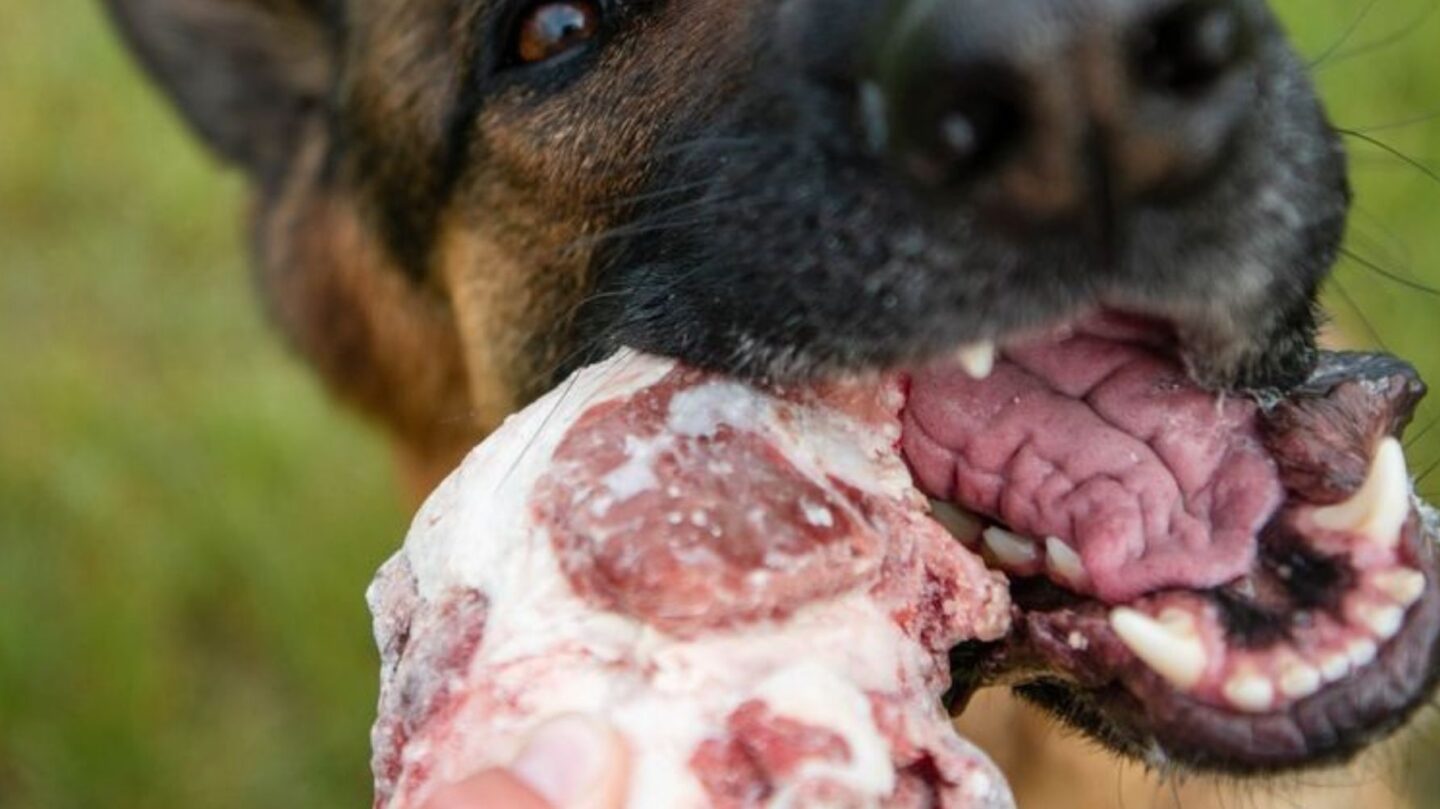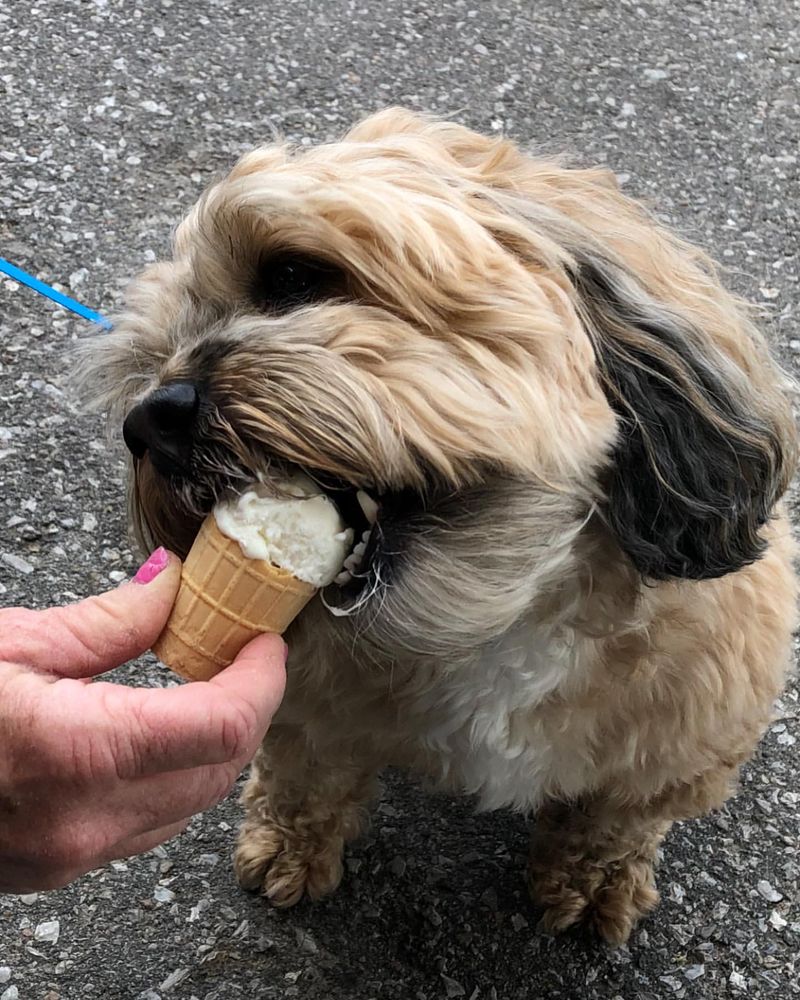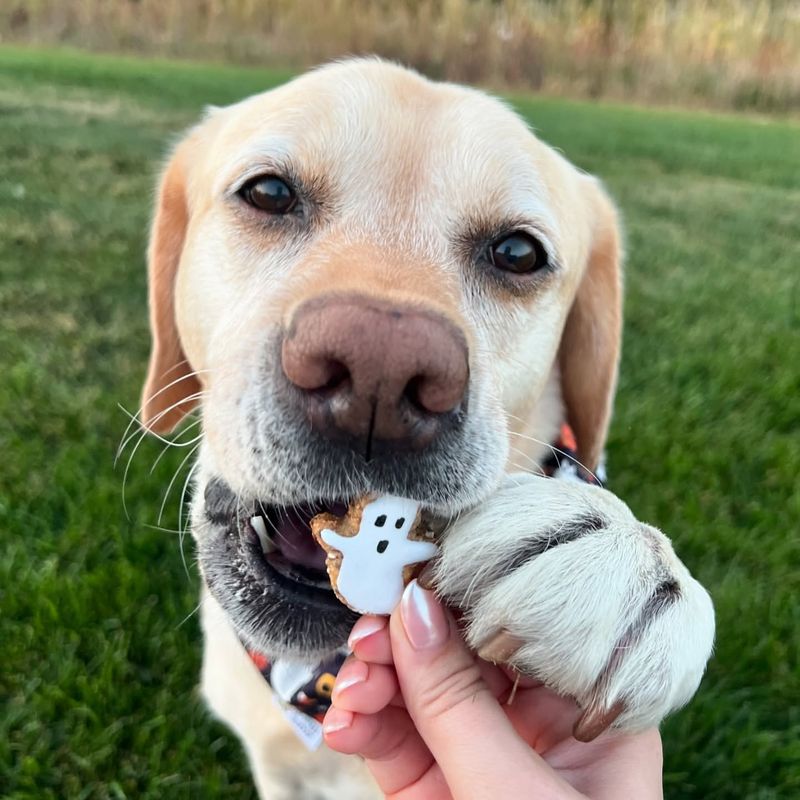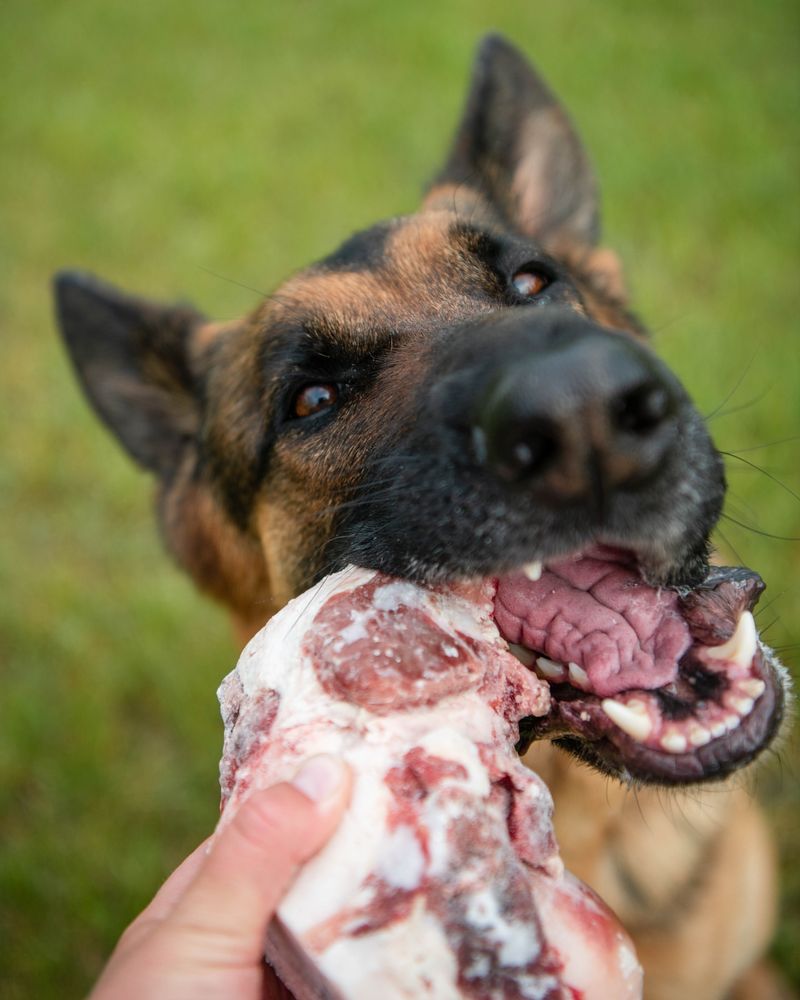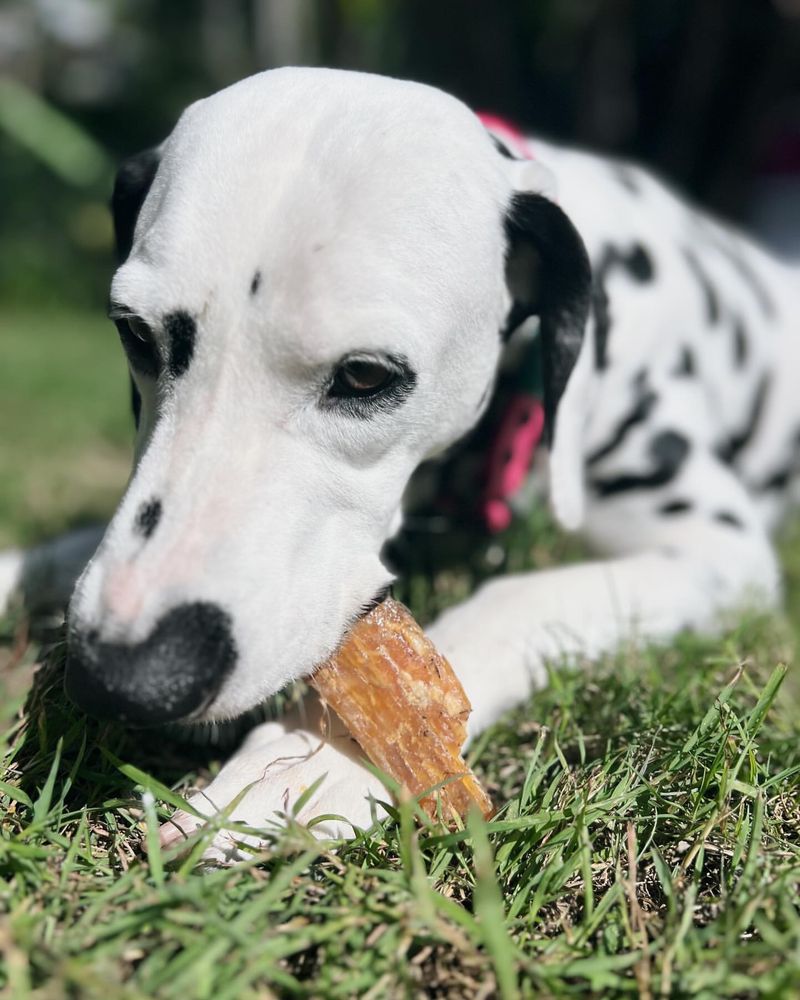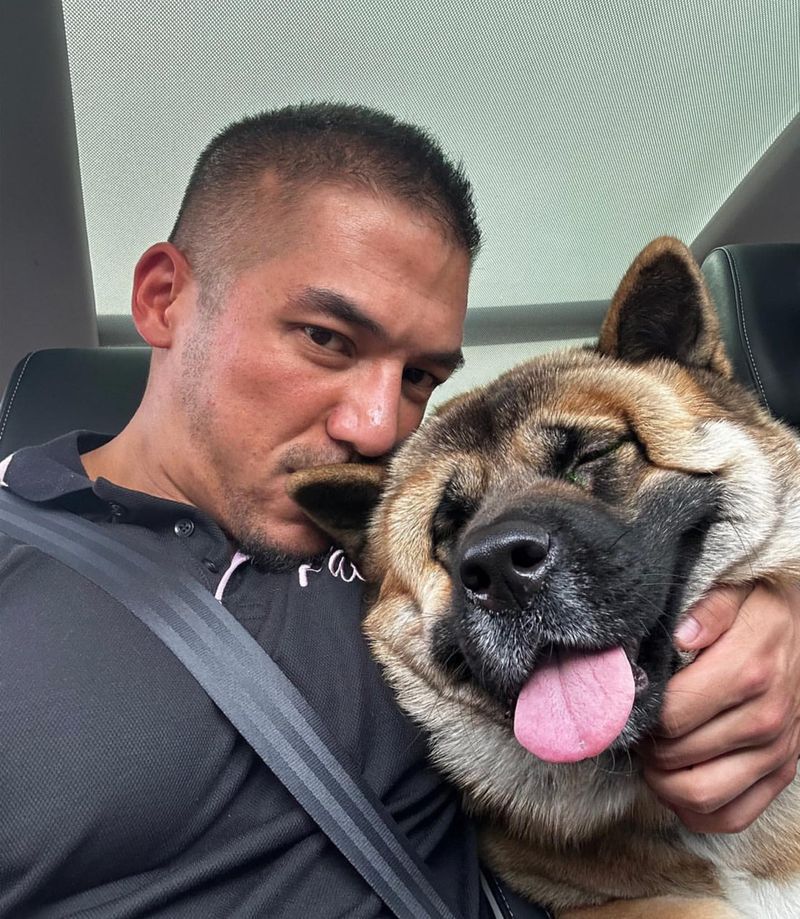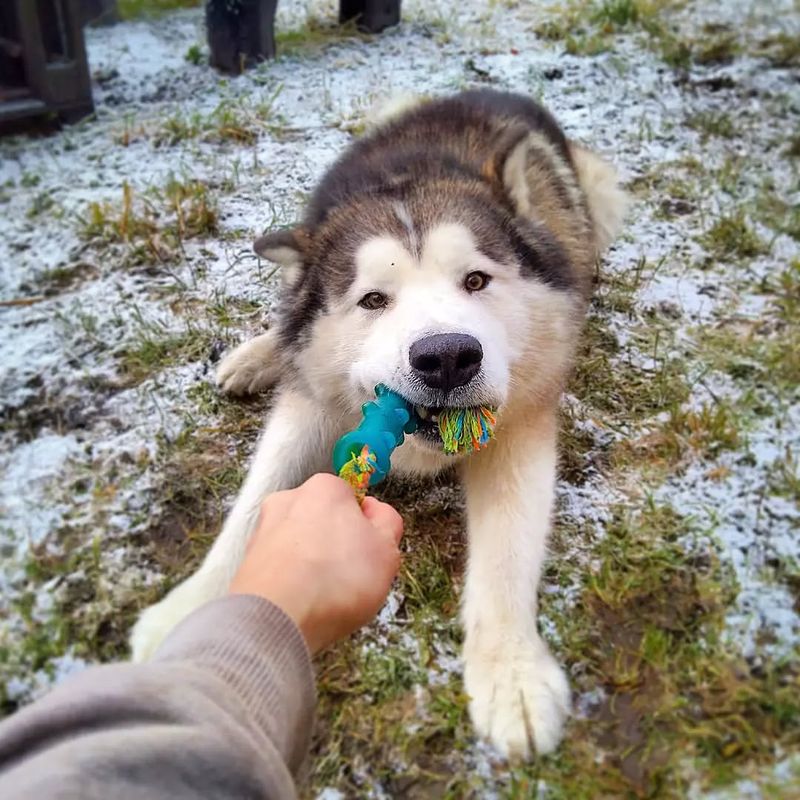Dogs have long been known as man’s best friend, offering companionship, protection, and loyalty. Yet, some breeds have a reputation for being a bit more quick to nip or bite than others. This does not mean these breeds are inherently dangerous, but that they might require more training, socialization, and understanding from their owners. Here, we explore 24 dog breeds that are most prone to biting, offering insights into why these breeds might bite more frequently and how to manage them responsibly.
Chihuahua
Small in stature but big in personality, Chihuahuas are known for their feisty nature. Despite their tiny size, they can be quite protective of their owners and territory. This protective instinct sometimes translates into nipping or biting, particularly if they feel threatened or cornered.
They are often wary of strangers and may bark or snap if approached too quickly. Training and socialization from a young age can help mitigate these behaviors.
It’s important to handle them gently and respect their space to foster trust and reduce the likelihood of biting.
Dachshund
Dachshunds, with their long bodies and spirited demeanor, are often underestimated in terms of aggression. Originally bred for hunting, they have a strong prey drive and can become nippy if not properly trained.
They are known to be stubborn and may become irritable when handled roughly. Early socialization and consistent training are key to managing their instinctual behaviors.
Providing plenty of exercises and mental stimulation can also help keep their biting tendencies in check, making them delightful companions.
Jack Russell Terrier
Jack Russell Terriers are energetic and intelligent dogs with a propensity for biting if not adequately exercised. Their high energy levels mean they require lots of play and stimulation.
Without it, they can become bored and resort to biting out of frustration. Socialization is vital to ensure they are comfortable around strangers and other animals.
Engaging them in activities like agility or fetch can help channel their energy positively, reducing the likelihood of biting incidents.
Cocker Spaniel
Cocker Spaniels are generally friendly but can exhibit biting behavior due to fear or anxiety. Their sensitivity means they can react negatively to loud noises or rough handling.
Ensuring a calm and stable environment is crucial for their well-being. Training should focus on positive reinforcement to build confidence and trust.
Regular grooming sessions, if handled poorly, can also trigger biting, so it’s important to make these experiences as comfortable as possible for them.
Pekingese
Pekingese are known for their regal attitude and can be quite aloof with strangers. Their independent nature may sometimes lead to biting, particularly if they feel their space is invaded.
They do best in homes where they can be the center of attention and are treated with respect. Gentle handling and understanding their need for personal space can help prevent biting.
Socialization is critical to help them become more accepting of new people and environments.
Lhasa Apso
Lhasa Apsos have a proud and confident demeanor, often making them prone to snapping if they feel threatened. Bred as watchdogs, they can be suspicious of strangers.
This breed benefits greatly from early socialization and obedience training to manage its guarding instincts. Owners should approach them with patience and understanding.
Regular grooming and gentle handling can prevent negative reactions and foster a trusting relationship with their handlers.
Miniature Pinscher
Miniature Pinschers are small yet fearless dogs that can show biting behavior if not properly socialized. Their high energy and curiosity often lead them into trouble.
Training should start early to curb any dominant tendencies and to teach them appropriate behavior. These dogs thrive on attention and mental challenges.
Providing a structured environment with plenty of play can deter biting and transform them into well-mannered pets.
Papillon
Papillons are lively and intelligent, known for their distinctive butterfly-like ears. Despite their size, they can become aggressive if overly pampered or inadequately trained.
Consistent training and socialization are crucial to prevent them from developing a dominant attitude. They need to learn boundaries early on.
Engaging them in activities that stimulate their minds can reduce boredom-induced biting, ensuring they remain happy and friendly companions.
Chow Chow
Chow Chows are known for their lion-like mane and independent nature. They can be aloof and reserved, which may lead to biting if they feel threatened.
Socialization from a young age is essential to help them feel comfortable around people and other animals. Consistent training can prevent unwanted behaviors.
Building a strong bond with clear communication will help nurture their loyalty and reduce aggressive tendencies.
Shih Tzu
Shih Tzus are loving companions but can become nippy if not treated gently. Their small size often leads to over-pampering, which might cause them to become spoiled and snappy.
Establishing firm boundaries and consistent training is key to preventing biting behaviors. They thrive in calm environments where they feel secure.
Regular grooming, when done with care, can be a bonding experience rather than a trigger for aggression.
Pomeranian
Pomeranians, with their fluffy coats and bright personalities, are often confident and protective. Their guarding instincts can lead to biting if not properly managed.
Socialization and training help them understand safe interactions with humans and other pets. Positive reinforcement techniques work best.
Keeping them engaged with toys and activities that stimulate their minds can also help prevent boredom-related biting.
Yorkshire Terrier
Yorkshire Terriers are small but mighty, often exhibiting boldness that surprises their owners. Despite their size, they can be territorial and nip when they feel their space is invaded.
Consistent training and socialization are vital for teaching them appropriate behaviors and ensuring they are comfortable in various settings.
Mental stimulation, such as interactive toys and games, can help keep their minds occupied and reduce attention-seeking biting.
Australian Shepherd
Australian Shepherds are highly intelligent and active dogs that require ample exercise. Without it, they can become frustrated and exhibit biting behaviors.
Engaging them in activities like herding, agility, or fetch can help channel their energy positively. Socialization ensures they are comfortable around new people and environments.
Training should be consistent and reward-based to foster trust and obedience, reducing the likelihood of biting.
Boston Terrier
Boston Terriers are generally friendly but can become possessive over toys or food, leading to nipping. Teaching them to share and obey commands is crucial.
Socialization from a young age helps them feel secure and reduces aggression towards strangers. They thrive on companionship and interaction.
Structured playtime and mental challenges keep them content and prevent boredom-related biting behaviors.
Cocker Spaniel
Cocker Spaniels are friendly yet sensitive dogs that may bite when overly stressed. Their keen sense of hearing makes them reactive to loud noises.
Creating a calm environment and using positive reinforcement techniques during training can help manage their stress levels.
Ensuring regular grooming is done gently and slowly can prevent them from feeling threatened and reduce the chance of biting.
Golden Retriever
Golden Retrievers are known for their gentle demeanor, but they can bite if startled or provoked. Socialization helps them understand safe interactions.
Training should focus on commands that build confidence and ensure they feel secure in their environment.
With plenty of mental stimulation and exercise, they can be loving companions who rarely resort to biting.
Labrador Retriever
Labrador Retrievers are generally gentle, but their exuberance can sometimes lead to nipping, especially during play. Teaching them bite inhibition from a young age is crucial.
Socialization ensures they are comfortable around people and other animals. Engaging them in activities that challenge their minds and bodies can help curb unwanted behaviors.
Consistent training with positive reinforcement builds trust and reduces biting incidents.
Rottweiler
Rottweilers are powerful and protective, traits that can lead to biting if not properly managed. Socialization from an early age is vital to ensure they are well-adjusted.
Training should emphasize obedience and control, focusing on commands that encourage calm behavior.
Providing them with a clear role within the family structure helps reduce tension and builds a bond of trust, minimizing aggression.
Doberman Pinscher
Doberman Pinschers are known for their loyalty and protective instincts, which can sometimes result in biting. Proper socialization and training from a young age are essential.
These dogs excel in environments where they have clear expectations and responsibilities.
Regular physical and mental challenges, such as obedience training or agility courses, can help prevent unwanted behaviors and promote a harmonious relationship with their owners.
German Shepherd
German Shepherds are intelligent and versatile, often seen working in various roles. Their protective nature can lead to biting if they feel their family is threatened.
Socialization ensures they are comfortable in different environments and reduces aggression.
Training should focus on harnessing their intelligence and energy positively, providing them with tasks that satisfy their working instincts and prevent biting behaviors.
Dalmatian
Dalmatians are energetic and playful, sometimes resorting to biting when they are overly excited. Teaching them how to manage their energy is crucial.
Socialization helps them learn appropriate interactions with others, reducing anxiety and aggression.
Engaging them in regular exercise and training sessions keeps their minds and bodies active, minimizing the chances of biting out of boredom.
Weimaraner
Weimaraners are strong, energetic dogs that can become nippy if not exercised enough. They thrive on activity and companionship, needing a lot of both.
Training should start early to establish boundaries and reduce dominant behaviors. Socialization helps them adjust comfortably to new people and environments.
Providing them with regular mental and physical challenges can prevent biting tendencies and promote a well-balanced temperament.
Akita
Akitas are known for their loyalty and reserved nature, which can sometimes lead to biting if they feel threatened. Early socialization is crucial.
Training should focus on building trust and reinforcing positive interactions. They need clear guidance and plenty of mental stimulation.
When properly managed, Akitas can form strong bonds with their families and be reliable companions without aggressive tendencies.
Alaskan Malamute
Alaskan Malamutes are strong and independent, often exhibiting biting behavior if not properly trained. They require consistent leadership and clear boundaries.
Socialization helps them understand how to interact with both humans and other animals. Regular exercise is essential to keep their energy levels in check.
With the right environment and handling, they can be gentle giants that rarely resort to biting.
